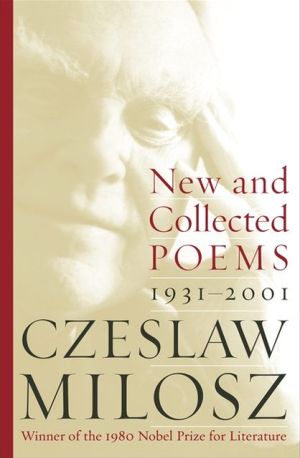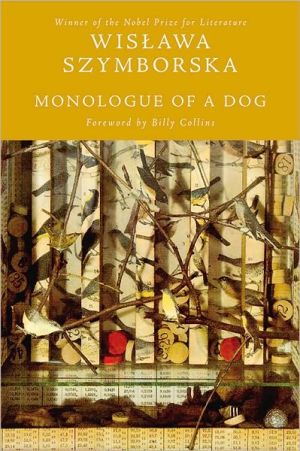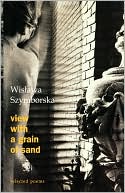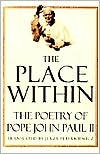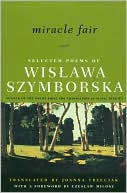Eternal Enemies
The highway became the Red Sea.\ We moved through the storm like a sheer valley.\ You drove; I looked at you with love.\ —from "Storm"\ One of the most gifted and readable poets of his time, Adam Zagajewski is proving to be a contemporary classic. Few writers in either poetry or prose can be said to have attained the lucid intelligence and limpid economy of style that have become a matter of course with Zagajewski. It is these qualities, combined with his wry humor, gentle skepticism, and...
Search in google:
The highway became the Red Sea.We moved through the storm like a sheer valley.You drove; I looked at you with love.—from "Storm"One of the most gifted and readable poets of his time, Adam Zagajewski is proving to be a contemporary classic. Few writers in either poetry or prose can be said to have attained the lucid intelligence and limpid economy of style that have become a matter of course with Zagajewski. It is these qualities, combined with his wry humor, gentle skepticism, and perpetual sense of history's dark possibilities, that have earned him a devoted international following. This collection, gracefully translated by Clare Cavanagh, finds the poet reflecting on place, language, and history. Especially moving here are his tributes to writers, friends known in person or in books—people such as Milosz and Sebald, Brodsky and Blake—which intermingle naturally with portraits of family members and loved ones. Eternal Enemies is a luminous meeting of art and everyday life.Publishers WeeklyCelebrated on two continents, Polish poet Zagajewski (A Defense of Ardor) looks back with some self-consciousness, in these new poems, at the lyricism of his compatriot Czeslaw Milosz, at the prewar Poland he portrayed, and at a Miloszian mixture of pathos, faith and doubt. Set in Krakow, Italy, Houston and New York, these frequently brief and always inviting works present, at their most general, "the world's materiality at dawn-/ and the soul's frailty." More specific elegies remember Milosz, Joseph Brodsky, Alexander Wat, W.G. Sebald, or look back on the poet's own "childhood, which evaporated/ like a puddle gleaming with a rainbow of gasoline." Cavanagh's supple translations let the verse sing in American English without making this Polish poet sound too American: as much as he embraces his new home (he is now teaching at the University of Chicago), he remembers, too, that "the Holocaust Museum in Washington" holds "my childhood, my wagons, my rust." Perhaps narrow in their sweet, sad moods, Zagajewski's poems remain wide in their sympathies. One especially ambitious work imagines the people of the ancient Near East coming alive again, startling archeologists: "Look, a flame stirs from the ashes./ Yes, I recognize the face." (Apr.)Copyright 2007 Reed Business Information
\ Publishers WeeklyCelebrated on two continents, Polish poet Zagajewski (A Defense of Ardor) looks back with some self-consciousness, in these new poems, at the lyricism of his compatriot Czeslaw Milosz, at the prewar Poland he portrayed, and at a Miloszian mixture of pathos, faith and doubt. Set in Krakow, Italy, Houston and New York, these frequently brief and always inviting works present, at their most general, "the world's materiality at dawn-/ and the soul's frailty." More specific elegies remember Milosz, Joseph Brodsky, Alexander Wat, W.G. Sebald, or look back on the poet's own "childhood, which evaporated/ like a puddle gleaming with a rainbow of gasoline." Cavanagh's supple translations let the verse sing in American English without making this Polish poet sound too American: as much as he embraces his new home (he is now teaching at the University of Chicago), he remembers, too, that "the Holocaust Museum in Washington" holds "my childhood, my wagons, my rust." Perhaps narrow in their sweet, sad moods, Zagajewski's poems remain wide in their sympathies. One especially ambitious work imagines the people of the ancient Near East coming alive again, startling archeologists: "Look, a flame stirs from the ashes./ Yes, I recognize the face." (Apr.)\ Copyright 2007 Reed Business Information\ \


